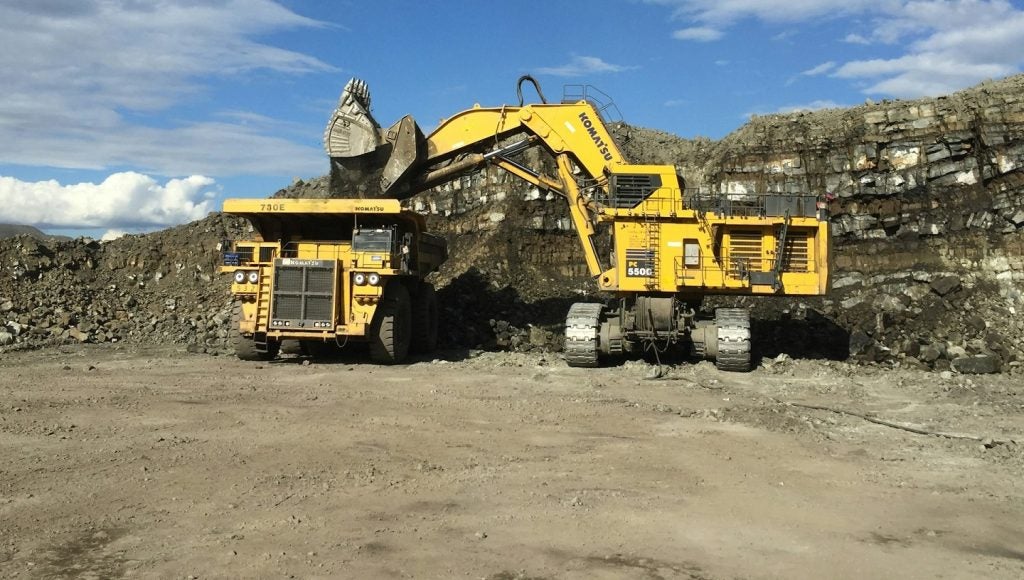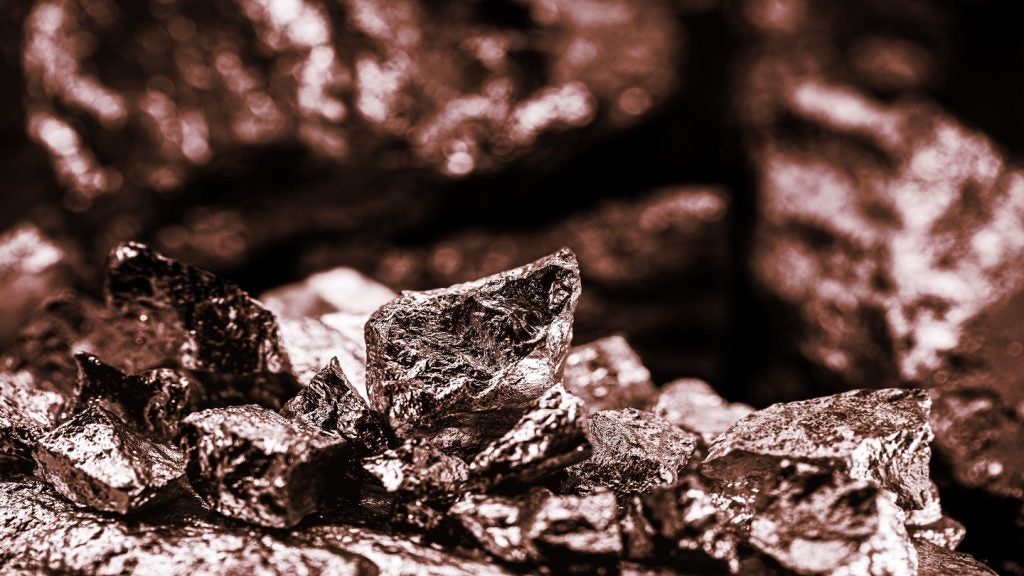

‘Plata O Plomo’, which translates to ‘silver or lead’ in English, is a saying common in parts of Mexico. It means money or bullet, or, more precisely; pay protection when the cartels ask, or face death – a rule that many miners now follow closely.
Iron ore and coal may not be as lucrative by the ton as cocaine or crystal meth, but that hasn’t stopped the cartels cashing in on the mining industry’s spoils. So much so that in March the Mexican government revealed that the infamous Knights Templar cartel counts mining as its top earner.
In interviews Alonso Ancira, president of the National Chamber of Iron and Steel estimated that drug cartels earned $1 billion in profits from selling iron ore in 2013. In March authorities seized nearly 120,000 tons of iron ore from the Port of Lázaro Cárdenas; two months later they would recover another 78,000 tonnes thought to be linked to Knights Templar from a ship leaving the same port.
Although there have been reports of illegal mining by cartels since 2008, these recent figures suggest illegal mining has hit new levels, putting added pressure on legitimate industry. The industry is already adjusting to the newly implemented 7.5% tax slapped on it in 2013. Illegal mining by cartels creates additional challenges for mining companies such as increased production costs – in regards to security, extortion and theft – reputational challenges and, perhaps most significantly, unfair competition.
See Also:
Concession stealing, extortion and theft
Michoacan has become the focal point for illegal mining in Mexico and consequently the location where the government is currently focusing much of its energy. Situated strategically near the pivotal Port of Lázaro Cárdenas, from where commodities, drugs and cargo are regularly shipped to Asia and the rest of the world, the state had become a battleground for cartels such as La Familia Michoacana, which was broken down in 2006 only to be replaced by Knights Templar.
How well do you really know your competitors?
Access the most comprehensive Company Profiles on the market, powered by GlobalData. Save hours of research. Gain competitive edge.

Thank you!
Your download email will arrive shortly
Not ready to buy yet? Download a free sample
We are confident about the unique quality of our Company Profiles. However, we want you to make the most beneficial decision for your business, so we offer a free sample that you can download by submitting the below form
By GlobalDataUntil federal government intervention it was the epitome of weak state government, endemic corruption and general lawlessness. The state’s former interim governor, Jose de Jesus Reyna Garcia, was sent to prison for ties to the Knights Templar in May this year.
Inside Michoacan lies an iron ore belt where 25% of Mexico’s iron ore is produced.
Cartels, predominantly Knights Templar, have been equally sly as they have been brazen in their illegal pilfering of this ore.
As South America makes its presence felt, improved security is calming the fears of international mining companies.
"This is a way [for cartels] to increase their portfolio and to consolidate their territorial powers," says Antonio Mazzitelli, representative of the Liaison and Partnership Office in Mexico for the United Nations Office on Drugs and Crime.
"Criminal groups like Knights Templar are deeply rooted in the territory and their culture is a predatory one."
Cartels will sometimes take over a mining concession granted to a legal miner that is in a remote and challenging environment and in territory the cartel control. In the case of Michoacan, the cartel mine it and export the ore through Port of Lázaro Cárdenas which until recently was under the control of the Knights Templar.
"Sometime they even force the companies to allow them to use their trucks," explains Eduardo Mills, director of operations at Southern Pulse, an intelligence company that has had experience investigating illegal mining operations in Mexico on behalf of a foreign multinational company.
Cartels have also been known to extort money from mining companies in order to allow them to operate.
Companies are often forced to pay between US$2 and US$4 per every extracted metric ton of iron ore, says a representative from Maplecroft, a leading global risk analytics, research and strategic forecasting company.
"Payments are reportedly made to both criminal organisations and self-defence groups," the company adds. "Self-defence groups enter cartel territory to fight against the cartels."
"The more problematic one is they target the screening yards," says Mills. "What they do is come up with a convoy of armed men and they’ll just take everything. It’s already been mined, crushed and strained. They’ll just ship it out."
Uncompetitive market for legitimate miners
The daily threat of violence, kidnap, extortion and banditry from cartels creates an increased security risk, and therefore cost, for mining companies. According to David Franco, Principal Latin America Analyst at risk analysis company Maplecroft, some companies have had a 15% increase in security costs alone.
Security, however, is a cost mining companies, which work all over Latin America, Africa and the Middle East, are used to factoring into their projects. Cartels pose no more of a security threat than political or religious extremists and organisations in Africa, the Middle East or other areas.
One of the biggest problems illegal mining poses for legitimate mining companies is therefore unfair competition.
"Mining companies are being forced to compete in an uneven playing field against rogue groups that do not abide by labour or other laws," says Franco.
Duncan Wood from the Mexico Institute agrees: "It places a squeeze on them [mining companies] in terms of controlling certain areas of the country and actually regaining control of mining operations which they used to control," he says.
Chinese mining companies, whose country is hungry for iron ore to feed its growing economy, have also been linked to cartels such as Knights Templar in Michoacan.
"Specific Chinese companies have operations in Mexico and they may mine, in other case, they may pay the cartels directly, whether it be through shell corporations, or not, for iron ore," explains Mills.
"Other times they actually barter with the cartels; they’ll give the methamphetamines precursors specifically in exchange for iron ore."
Once one of the most prominent of the emerging nation economies, a series of factors have recently conspired to threaten Mexico’s "Aztec Tiger" status.
Other times, Mills adds, established miners complain that new miners set-up and start producing large amounts of iron ore in a year without seemingly going through proper exploration and environmental checks.
In other instances, mining organisations have been set up to launder drug money or are missing correct licences.
Deep mistrust – damaging industry’s reputation
On top of unfair competition, illegal mining can also play havoc with the reputation of legal mining operations.
"Any illegal mining impacts the reputation of all miners because the community does not differentiate between the two," says Mike Elliott, EY Global Mining & Metals Leader. "As a result, in areas where this is a problem, it becomes harder for legal mining operations to get that community buy-in and the social licence to operate.
"This impacts social licence to operate across a range of factors – including the environment, human rights, community investment and worker safety."
Indeed, Wood says in recent years there has been an ‘evolving debate’ about socially responsible mining in Mexico with enormous pressure on mining companies to improve worker safety and their relationship with local communities. It’s another added burden for mining companies but one that creates a more sustainable presence and co-operation from local communities.
Taking back control – a slow and daunting task
Mining companies operating in Mexico’s cartel hotspots such as Michoacan, Colima, Durango, Coahuila, Jalisco and Carro want the same in Mexico as they do in any other country they operate – stability.
In November 2013 the Mexican navy seized control of the Port of Lázaro Cárdenas, disarming state authority and placing navel forces at the port to control its day-to-day operations. A special commissioner was also provided to preside over the whole state. Wood says some stability has been achieved since the government took this action, but the longevity of this repose is very uncertain.
"It could take decades to wipe out the cartel," says Wood. "The federal government has said it will stay in Michoacan until the problem is solved. It depends how you define the problem. If it is a question of public insecurity? Is it a problem of organised crime? Or is it a problem of the rule of law?" he adds.
Many would say it’s a problem of all three.
Mazzitelli says the government is taking a wholesale approach: "The target is not mining itself on the government side, the target is the expansion of criminal groups on the territory of all illegal activities, not just mining."
"The will of the government and the strategy they have adopted in the last six months shows clearly the will to change the way politics and businesses is run," he adds.
Certainly the government’s announcement about the scale of illegal mining in Mexico suggests they want the world to know they are armed for change.
President Enrique Peña Nieto himself has said: "I wish to assure all Michoacán residents that we will be with you and that we will combine efforts to ensure that this state returns to its everyday activities in a climate of order, tranquility and trust."
So what has actually been achieved?
The government had notable success in 2014. In April Forbes reported that the Mexican government killed several members of Knights Templar, leaving only one boss, a former school teacher.
Self-defence or vigilante groups, along with the police, have had further success in gaining back territory from Knights Templar in Michoacan. In the East of Mexico the government has had success in significantly downgrading the capacity of another crime group, The Zetas.
But there is always the risk of the ballooning affect – where a cartel, once ousted, pops up somewhere else. Franco, however, thinks this is unlikely with regard to Knights Templar: "The privileged geographic position of Michoacan…suggests that the model implemented by the Knights Templar will be difficult to emulate in other parts of the country."
In Michoacan, at least, the feds are out in force, for now. If order can be established, it’s win-win for everybody; illegal mines can operate legally, boosting local economy and jobs, and mining companies will have reduced costs and the opportunity to create better relationships with local communities. In the longer term the government may consider reducing the tax burden.
But organised crime in parts of Mexico is flexible, adaptable and deep rooted. The saying ‘Plata O Plomo’ is ingrained in local communities and cartels alike. Erasing this way of life will take a generation – 50 to70 – years, says Wood.
"The federal government will keep its forces in Michoacan for at least two years; I would have thought," he says "to try to control territory there as best as they can, but actually solving the bigger problem in Mexico is going to take a lot longer."


.gif)



